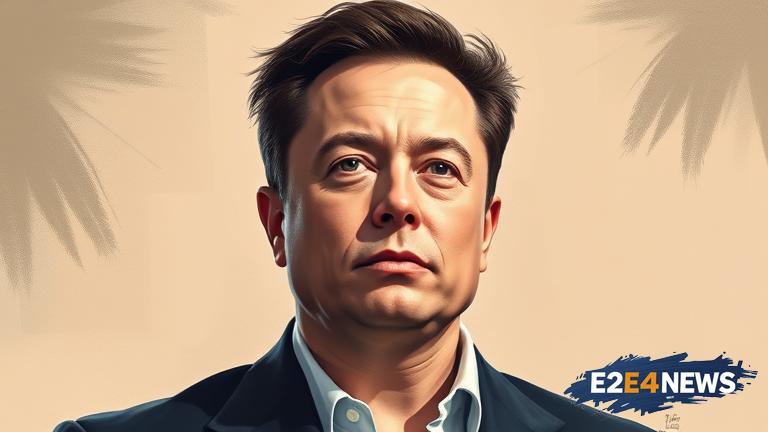In a shocking move, Elon Musk’s companies have filed a lawsuit against Apple and OpenAI, alleging anticompetition practices that have hindered the growth of Musk’s businesses. The lawsuit, which was filed in a US court, claims that Apple and OpenAI have engaged in unfair and deceptive practices to stifle competition in the tech industry. According to the lawsuit, Apple has used its dominant position in the market to limit the ability of Musk’s companies to compete, while OpenAI has allegedly colluded with Apple to restrict access to its AI technology. The lawsuit also claims that Apple has unfairly restricted the use of its App Store, making it difficult for Musk’s companies to reach customers. Musk’s companies are seeking damages and an injunction to stop Apple and OpenAI from continuing their alleged anticompetition practices. The lawsuit is the latest in a series of high-profile antitrust cases in the tech industry, and is likely to have significant implications for the future of competition in the sector. The case has sparked a heated debate among tech industry experts, with some arguing that Apple and OpenAI have indeed engaged in anticompetition practices, while others claim that the lawsuit is without merit. The lawsuit is also likely to draw attention to the growing rivalry between Elon Musk and Apple, which has been intensifying in recent months. Musk has been a vocal critic of Apple’s business practices, and has accused the company of stifling innovation and competition. The lawsuit is a significant escalation of the rivalry between the two tech giants, and is likely to have far-reaching consequences for the industry as a whole. The case is also likely to raise questions about the role of regulators in enforcing antitrust laws, and whether they have done enough to prevent anticompetition practices in the tech industry. As the lawsuit makes its way through the courts, it is likely to be closely watched by industry experts and regulators, who will be eager to see how the case unfolds. The outcome of the lawsuit is far from certain, but one thing is clear: the case has the potential to significantly impact the future of competition in the tech industry. The lawsuit is a reminder that the tech industry is highly competitive, and that companies will stop at nothing to gain an advantage over their rivals. The case is also a testament to the growing importance of antitrust laws in regulating the tech industry, and ensuring that companies compete fairly and honestly. As the case continues to unfold, it is likely to be the subject of much speculation and debate, with many experts weighing in on the merits of the lawsuit. The lawsuit has also sparked a wider debate about the need for greater regulation of the tech industry, with some arguing that companies like Apple and OpenAI have become too powerful and need to be reined in. Others argue that the lawsuit is an example of how the free market can regulate itself, and that companies will always find ways to compete and innovate. The case is a complex one, and is likely to involve many different legal and technical issues. The lawsuit is a significant development in the ongoing saga of the tech industry, and is likely to have far-reaching consequences for companies and consumers alike. The case has the potential to impact not just the tech industry, but also the wider economy, and is likely to be closely watched by regulators and industry experts. The lawsuit is a reminder that the tech industry is constantly evolving, and that companies must be prepared to adapt to changing circumstances and regulations. The case is a significant challenge to the dominance of Apple and OpenAI, and is likely to have significant implications for the future of the tech industry. The lawsuit is a major development in the ongoing rivalry between Elon Musk and Apple, and is likely to be the subject of much speculation and debate in the coming months.
